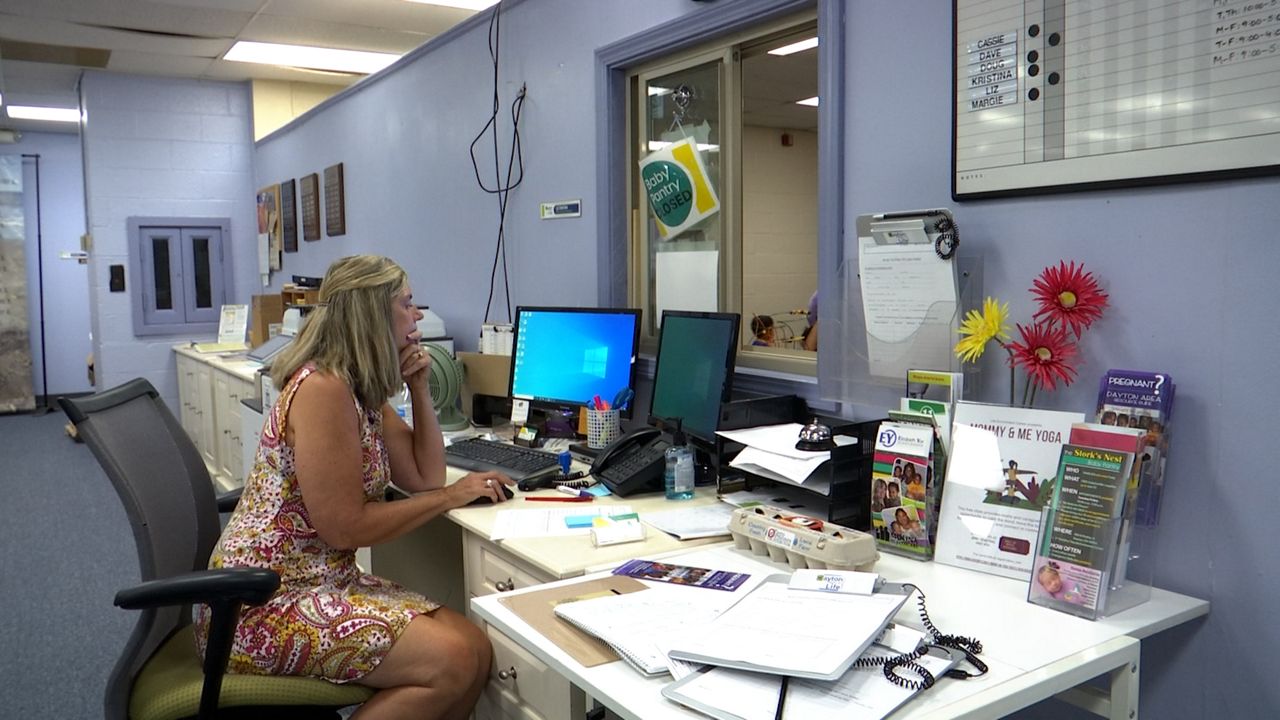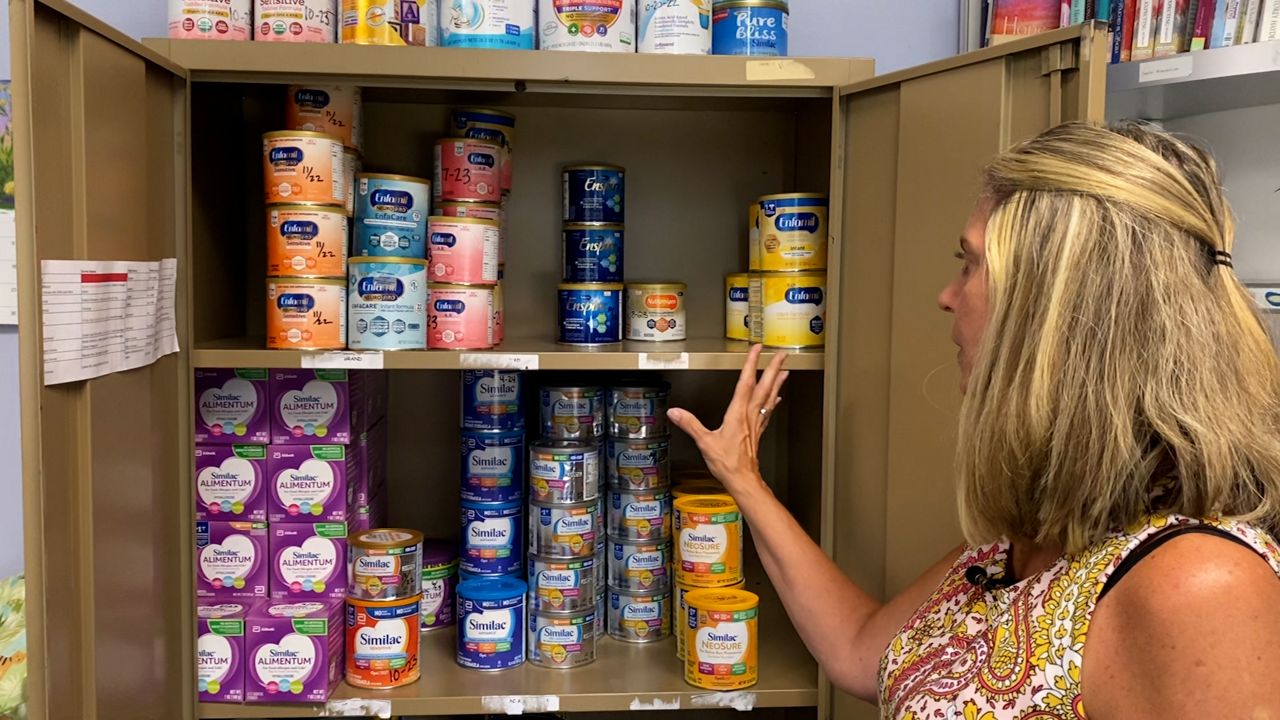DAYTON, Ohio — A month after the Supreme Court’s Dobbs v. Jackson Women’s Health Organization decision, which overturned the constitutional right to an abortion, a number of anti-abortion groups, like Right to Life, have called for more support for families facing unwanted or unexpected pregnancies.
In Dayton, the local Right to Life Chapter has worked to ramp up services and expand visibility at its Stork’s Nest Baby Pantry, expecting more mothers in need requiring their services in the coming months.
Within hours of the Dobbs v. Jackson decision, Ohio Attorney General Dave Yost declared Ohio’s "Heartbeat Law," which bans abortion after six weeks or when a fetal heartbeat is detected, the law of the land.

The move has sparked a mix of protests and celebrations across the state. For anti-abortion activists like Margie Christie, the executive director of Dayton Right to Life, it signaled a win for her movement, but also a call to action.
“We can’t ask women to choose life and say, 'hey, good luck, hope it works out for you.' That’s not how it works,” she said. “You need to be there and provide services, so that’s what our organization does.”
In Dayton, the Right to Life nonprofit has a policy advocacy arm and foundation, which Christie said the organization works to keep separate. While the policy arm advocates for laws that restrict abortion access, the foundation side she said is about making it as easy as possible for parents to carry their children to term and care for them after birth.
At the Stork’s Nest Baby pantry, that means everything from providing formula, to diapers, to clothing up until size 5T. The one thing the pantry won’t provide, though, is medical advice.
“This is not a pregnancy center,” Christie said. “We’re basically helping moms after the fact, or new moms.”
Clients can come into the pantry for a full visit once every other month. Then Christie asks if they’re pregnant, whether they’re receiving any care for the pregnancy and refers them to places they could get medical help if they need it. To her though, the priority is addressing any barriers they may be facing that would discourage them from keeping their child.
“We know, according to the Ohio abortion report, that most women seeking abortions already have a young child at home,” she said. “Often they’re overwhelmed and unsure how to provide for a new child at the same time.”
Christie said the baby pantry works to fill that gap however it can, allowing emergency visits for extra food and diapers anytime families need it and directing them to other resources if there’s something they can’t provide. She said if families seem dead set on not keeping their baby, she also directs them toward information about adoption or safe haven laws.

Typically, the pantry serves between 35 and 40 families every month, but since the Supreme Court decision, she said she’s already seen an uptick in people seeking the pantry’s help. Christie only expects the need to grow as more mothers find themselves in crisis pregnancies outside of Ohio’s six-week ban.
“We’re definitely trying to scale up and increasing our options like we’re looking at options of taking the pantry on the road,” she said.
To abortion rights activists, this approach, no matter how well-intentioned, fails to address one of their largest concerns about an abortion ban: The lack of bodily autonomy for the person forced to carry the pregnancy to term.
At a Dayton rally in protest of the decision, organizer Rachel Gannon spelled out her concern.
“Pregnancy’s not fun. It’s not sunshine and rainbows, and you’ve got that glow—it’s pain. It’s nausea. It’s misery,” she said. "Why would we force that upon somebody?”
Christie, who believes abortion ends the life of the unborn child, meanwhile remains unconvinced, which is why she said the pantry’s mission hasn’t changed since the 1970s, serving families since just before the Roe v. Wade decision. She said Right to Life believes abortion should never be an option and will continue to work to change policy and offer services to end the practice in Ohio and beyond.
“If they’re pregnant, we can work with them,” she said.



